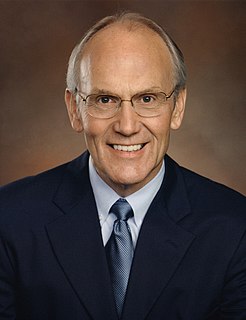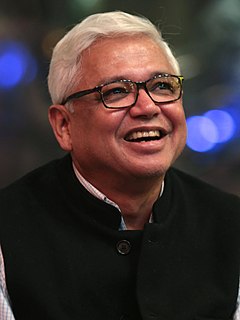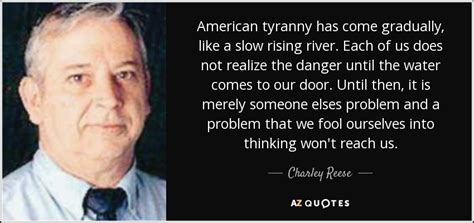A Quote by William O. Douglas
The critical point is that the Constitution places the right of silence beyond the reach of government.
Quote Topics
Related Quotes
The first right of every human being is the right of self-defense. Without that right, all other rights are meaningless. The right of self-defense is not something the government bestows upon its citizens. It is an inalienable right, older than the Constitution itself. It existed prior to government and prior to the social contract of our Constitution.
Does the U.S. Constitution stand for anything in an era of government excess? Can that founding document, which is supposed to restrain the power and reach of a centralized federal government, slow down the juggernaut of czars, health insurance overhaul and anything else this administration and Congress wish to do that is not in the Constitution?
The tenth amendment said the federal government is supposed to only have powers that were explicitly given in the Constitution. I think the federal government's gone way beyond that. The Constitution never said that you could have a Federal Reserve that would have $2.8 trillion in assets. We've gotten out of control.
It's a mistake to think that God has conflict with anything. He's everything. So the more close you are to God, how can you be in conflict with anybody? Conflict comes from ego, and from thinking, "I'm right and you're wrong." If I can reach the point where I understand that what is right for me may be different than what is right for you, that would be a good step. But most people don't reach that point, and so they fight about it.
Experience teaches that for most people there is a limit beyond which their constitution cannot comply with the demands of civilization. All who wish to reach a higher standard than their constitution will allow, fall victims to neurosis. It would have been better for them if they could have remained less "perfect".
The Chinese government attaches importance to, and protects, human rights. We have incorporated these lines into the Chinese constitution, and we also implement the stipulation in real earnest. I think for any government, what is most important is to ensure that its people enjoy each and every right given to them by the constitution.
It [the Constitution] didn't break free from the essential constraints that were placed by the founding fathers in the Constitution, at least as it's been interpreted, and the Warren court interpreted it in the same way that generally the Constitution is a charter of negative liberties. It says what the states can't do to you, it says what the federal government can't do to you, but it doesn't say what the federal government or the state government must do on your behalf. And that hasn't shifted.
The Constitution, in addition to delegating certain enumerated powers to Congress, places whole areas outside the reach of Congress' regulatory authority. The First Amendment, for example, is fittingly celebrated for preventing Congress from "prohibiting the free exercise" of religion or "abridging the freedom of speech." The Second Amendment similarly appears to contain an express limitation on the government's authority.
A constitution is not the act of a government, but of a people constituting a government; and government without a constitution is power without a right. All power exercised over a nation, must have some beginning. It must be either delegated, or assumed. There are not other sources. All delegated power is trust, and all assumed power is usurpation. Time does not alter the nature and quality of either.






























